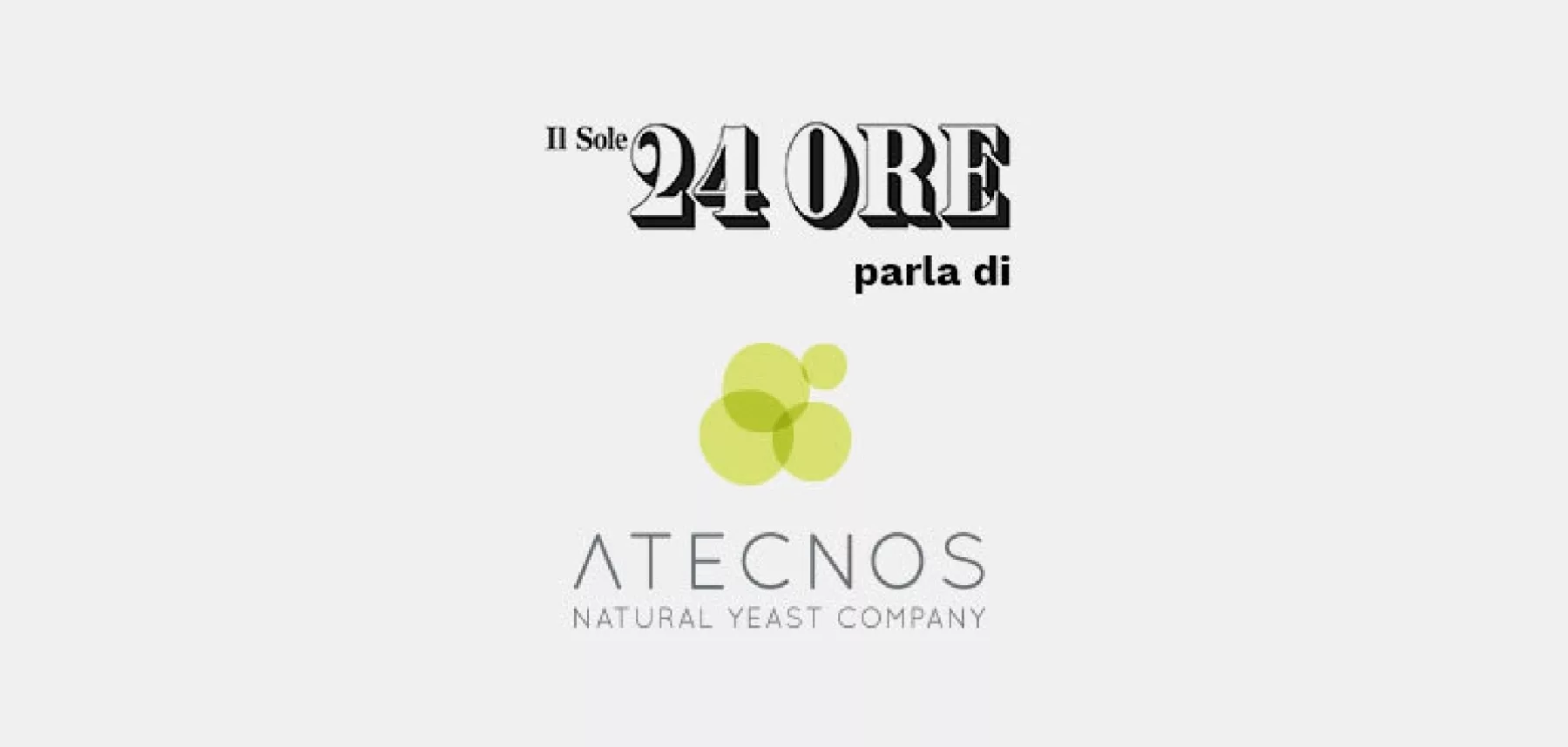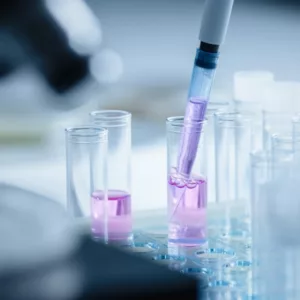"Natural and… customized yeasts" Il Sole24Ore talks about us

This article is taken from Sole24Ore
They banned chemistry, chose to protect biodiversity, preserve local heritage, and put obstacles in the way of multinational companies. The result is a continuous growth in turnover, which in 2015 reached 7 million euros.
We are talking about Bioenologia 2.0, a company run by a couple, Maurizio Polo and Chiara Beraldo, who had a brilliant idea: to isolate, study, and reproduce the yeasts found in vineyards, in the grape clusters. An idea in line with a market that is increasingly turning its back on multinationals and looking for niche, high-quality products. «In the last 5 years – says Maurizio Polo – 5 million euros have been invested in innovation, technology, and research. Eight thousand square meters of laboratories, offices, warehouses, and sterile areas where the yeasts are produced and equipped with cutting-edge technology.»
It is in this context that ‘Atecnos’ was born, the company’s brand. «It’s a case of ‘nomen omen – says Polo – because we are talking about natural yeasts, in cream or liquid form, produced thanks to the development of a system that does not involve thermal treatments.» The yeasts have been successful worldwide because, in addition to being completely natural, they are absolutely customized.
Each company can choose to have its own yeast, which will uniquely characterize and distinguish the wine it produces. Sterilization is done cold using a series of microfiltrations. This way, the yeasts are more vital, hence more effective (6 to 10 times more than traditional yeasts). They are exported to Portugal, Spain, Germany, and Israel. Even the French, the leading yeast producers in Europe, appreciate their properties and quality. «Starting with wine –Polo explains – over time we have expanded our reach to cider, the food industry, and the brewing industry. It is the latter that is giving us great satisfaction, as evidenced by a recent ranking by the specialized magazine "Fermento Birra", which listed 4 of the 5 best beers in Italy made with our yeasts. Our next goal is to produce yeasts with antifungal activity to fight downy mildew, powdery mildew, and botrytis.»
The yeast eventually becomes the property of the company, like a brand, a signature, to make productions unique. This need also arises from the strong risk of standardization, as dry yeasts are currently produced and distributed only by large companies. In short, small productions versus large multinationals, against standardization and monopolization. «The results achieved so far – adds Angiolella Lombardi, microbiologist responsible for yeast selection projects – “are very promising.
In the grapes harvested from various regions of Italy, we have found significant biodiversity that has led us to select yeast strains with unique enological characteristics capable of characterizing and enhancing the wines made from them. We strongly believe in this project, which helps us safeguard and return to the territory a microbial biodiversity that, perhaps because it is invisible, has always been considered less important compared to the biodiversity of the animal and plant kingdoms.»
Since the 2015 harvest, several projects have been activated involving wineries and regions across Italy: Veneto (Marzemino, Malbech, Merlot, Moscato Giallo, Cabernet, Glera, Pinot Grigio, Lambrusco Foglia Tonda, and Lambrusco Foglia Frastagliata grapes), Trentino Alto Adige (Solaris, Sauvignon, Moscato Giallo, Moscato Rosa, and Pinot Nero), Piedmont (Timorasso, Citronino), Marche (Passerina), Abruzzo (Passerina, Pecorino, Cococciola), Puglia (Fiano Minutolo), Sicily (Nerello Mascalese, Nero d’Avola), Emilia Romagna (Malvasia, Bonarda, Barbera, San Giovese, Merlot, and Petit Verdot), Tuscany (Vermentino, Alicante, Viognier, Merlot, and Sangiovese), Lazio (Malvasia di Candia, Malvasia Puntinata).
Published on 20/06/2017
